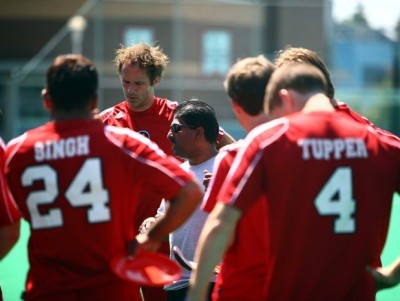
Current Challenges
- Access to quality coaching across Canada varies.
- Coach training requirements are not defined for different stages of athlete development.
- Impact of current coach training programs is not known and offered sporadically in many regions.
- Not enough paid coaching opportunities.
- Parent coaches are not generally supported with training, mentoring and resources.
- Many clubs lack a professional coaching structure, including a Head Coach.
- No standard training program exists for Club Head Coach or Technical Director.
- Many coaches promote over-specialization prematurely by limiting players to specific positions to win.
- Performance feedback to athletes varies and can be inconsistent.
- Coaching plans are not reviewed annually.
- Not all coaches utilize or understand sensitive periods of accelerated player “trainability.”
- Many coaches do not understand the importance of periodization in program design.
- Coaching education covers issues of growth, development, and maturation only marginally.
- Sport science, sport medicine and sport-specific technical-tactical activities are not integrated.
- Few specialist coaches exist for advanced stages of athlete development.
- The best coaches are with the best athletes.
- Coaches require more professional development opportunities, not simply certification.
LTHD Vision
- More accredited and qualified coaches exist at all levels with competencies defined by LTHD stage.
- Parent-coaches and physical education teachers are applying LTHD principles.
- Coaching education courses are reviewed and re-designed where necessary.
- National Team coaching programs and standards are integrated with NCCP.
- The status of coaching qualification is raised and opportunities for continuous professional development are provided.
- Clubs with significant membership have a professional Club Head Coach/Technical Director.
- Qualifications are established and followed for club Head Coach and Technical Director.
- All coach education and resources are offered regularly in both official languages.
- Coaches have opportunities to improve formally and be recognized at all levels.
- Coaches have access to coaching resources from the National Team.
- Coaches are given opportunities for additional experiential education, such as seminars and elite guest coach demonstrations.
- Formal mentoring programs exist at national, provincial, and regional levels.
- Current and retired players are formally recruited as coaches and mentors.
- Parent coaches receive orientation by Technical Director / Certified coach in every club at the beginning of season.
- Volunteer coaches can access expertise within the club throughout the season.
- Novice club coaches have opportunities to gain field hockey competition experience.
- Club Head Coaches have coaching competencies, administrative competencies (management, computer, technologies, and communication), leadership competencies and training competencies.
- Each Provincial team has an accredited and compensated coach.
- Teachers and coaches delivering field hockey programs in schools are trained to introduce and train field hockey skills, both in physical education and during extra-curricular programs.
- Student field hockey players are trained to be community coaches for mini and junior field hockey.
- Seminars are presented in western Canada, central Canada and the Maritimes.
- Regional, Provincial, and Territorial seminars are coordinated so that coaches have more than one opportunity to attend.
Implementation
- Align LTHD principles and pathway with NCCP coach education process and outcomes.
- Train and mentor more coaches to work with player development at the junior level.
- Establish a coaching standard for club, university, provincial and national coaches.
- Increase the quality and quantity of coaches, umpires, and administrators through an extensive program of education, training, and resources at local, regional and national levels.
- Establish formal coach mentoring programs at National, Provincial, and regional levels (can be face to face, e-mentoring, telephone)
- Develop more professional opportunities for coaches.
- Provide novice club coaches with opportunities for field hockey competition experience.
- Provide training for parent coaches in field hockey.
- Develop coaching resources for field hockey – DVD with rules and games.
- Raise the standards of expertise in the National Team Technical staff.
- Expand National Team coaching weekend events for player and coach development opportunities.
- Enhance interaction and communication between National Team staff and Clubs and FHC staff.
- National convention of field hockey coaches is established.
- Coaching events schedule is online and updated regularly.


